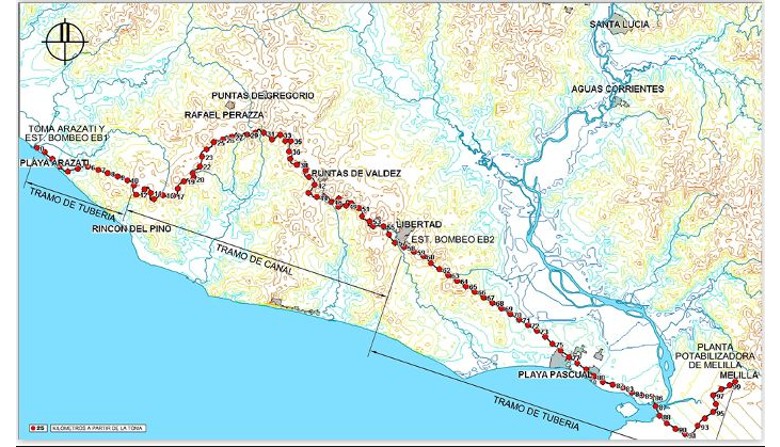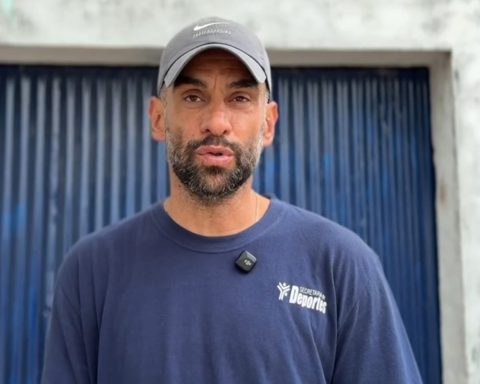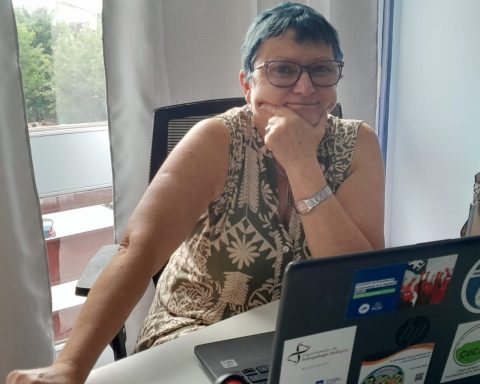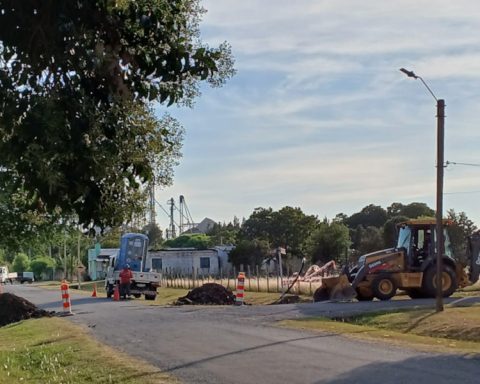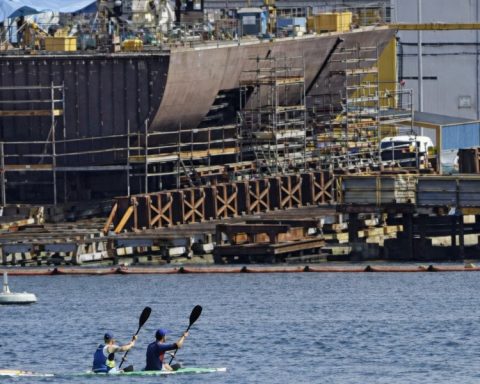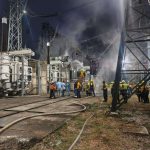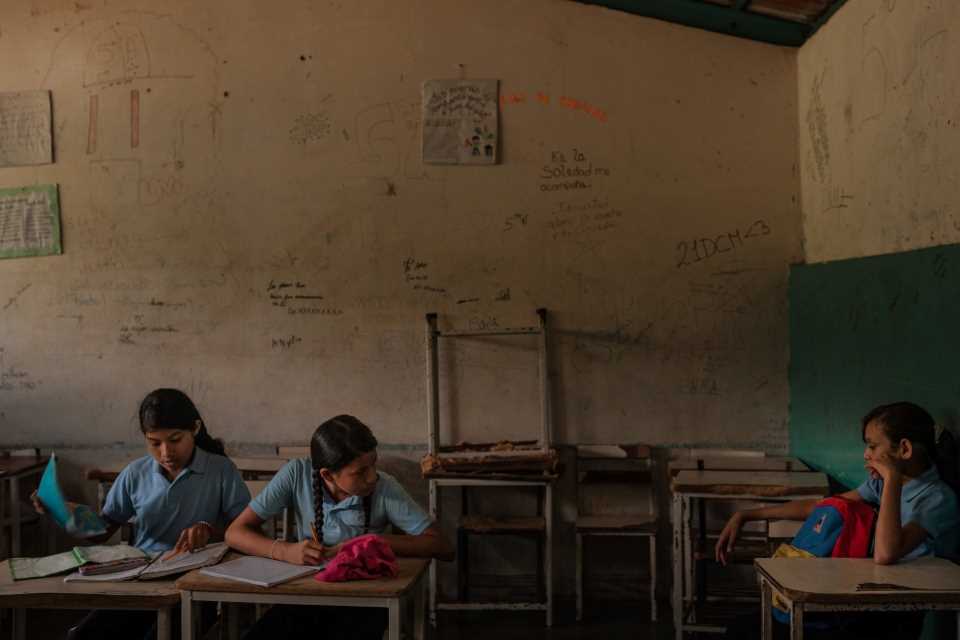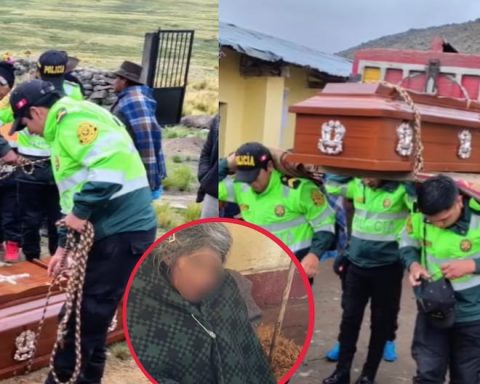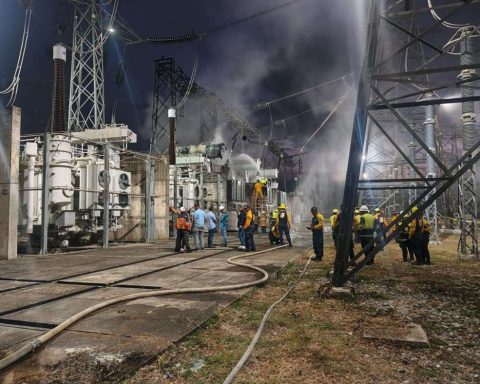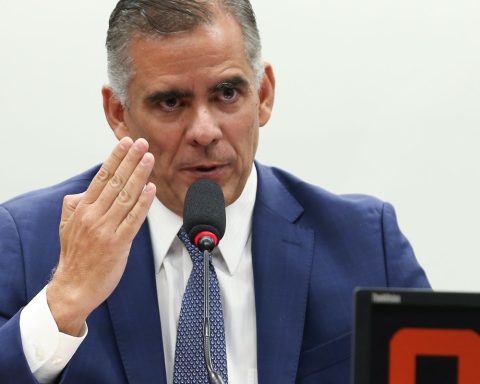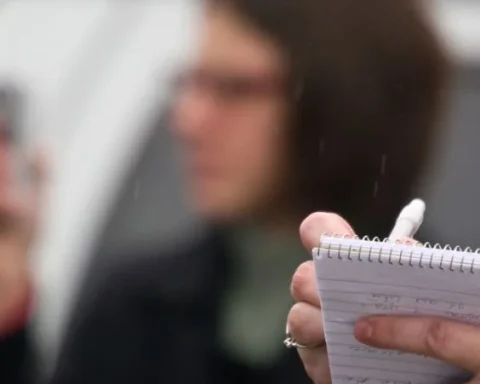During this week, the Minister of the Environment, Adrián Peña, appeared before Parliament together with authorities from the ministry and the state company OSE to present the progress on the Neptuno project.
This private initiative proposes the construction of a water purification plant on the La Plata river in the waters of the Arazatí area, in the department of San José. With this building, the government intends to solve the water supply problem that is expected to exist in Uruguay (especially in the metropolitan area) by 2045.
However, the proposal from the companies Saceem, Berkes, Ciemsa and Fast has not escaped criticism from academics and scientists. Even members of the governing coalition are not convinced by it. For example, deputy Eduardo Lust (Open Council) said that, although his party had no “position” on the matter, there are “examination questions to ask.” Likewise, he said that those who carry the proposal look like “superheroes from a Netflix series” by using an “infinite” water source.
In light of the foregoing, the Federation of OSE Officials (FFOSE) is one of the factions most resistant to the project and, in conversation with The R Journal, the secretary of Waters of the guild, Marcos Miguez, recounted the main points for which they are opposed.
unconstitutionality
To begin with, the trade unionist pointed out that the way in which the initiative is promoted is not correct and is unconstitutional.
“Although we recognize that it is necessary due to the problem of lack of water that we will have in 2045, we have to work on the matter in a different way,” he said.
Migues explained that until now the parameters of Law 18,610 that regulates the matter have not been complied with. “This constitutionally approved law establishes that all projects related to water (planning, execution and monitoring) must have citizen consultation, that is not being fulfilled today,” he said.
In response to Minister Peña’s statements that there is indeed a discussion, the Secretary of Water explained that although there is “an area of citizen discussion with the Basin Commissions and the Regional Water Councils, every time we meet he said that there is still no project defined and therefore cannot give information”.
“All the documentation we received was done outside of all meeting areas, it never happened during the same thing. They did not present us with feasibility or environmental impact studies; We did not receive all the studies that the minister presented in the Assembly from them, ”he asserted.
On the other hand, Miguez assured that “Law 17,555 of private initiative does not apply to the issue of water, because it is a law of 2002, prior to the reform of the Constitution (2004) when it was made clear that in this matter there is no place private initiative”.
Overcharge and refusal of the government to the public debt
In turn, the representative of FFOSE assured that the current one is a “commercializing and privatizing” project that grants the private company up to 30 years of contract related to the water service.
“The Constitution establishes that the supply of drinking water and sanitation must be guaranteed by the State, throughout its process. With this project, 28 years of maintenance are delivered to the private consortium. This is privatizing and commodifying because they come to do a business with the water and then all the maintenance is given to them during that time”, he maintained.
On the other hand, he said that if the work is carried out, it should at least be done in the “least bad” way and this would be with spending from the government, not from the private sphere.
“The work, which involves the raw water intake, the water treatment plant and the abduction line costs around 258 million dollars. They want to finance it in such a way that the private consortium takes on that debt, pays for and builds all the infrastructure, and then we (Uruguayans) pay them for the work with a 30-year contract: two for construction and, on the other hand, 28 years where the plant rental and maintenance. With a fixed canon of 40 million dollars, that is a point that we also talk about, because of the extra cost”, he stated.
“We always told them that, in case this project came out, that at least it would be the least bad thing for Uruguayans. In other words, if it is the government that takes on the public debt, that would be the least bad thing. However, we met with President Lacalle and with Minister Peña and they let us know that they do not want to take on public debt. It is true that this government wants to make the largest investment in drinking water in the last 150 years, but it does not want to do it with public debt. They want to deliver a very large project without putting up the money, even though OSE has the approved lines of credit to take on that debt”, he added.
“What makes us all think is that they are looking for this financing mechanism to benefit these construction companies,” he said.
The “boxed” project in Casupá
Miguez also said that this work is prioritized over that of Casupá, a project that has been working on for about 10 years, as he explained, which was very advanced.
“This project was discussed by the previous government for more than 10 years, there were lines of credit and there are already expropriated fields to carry it out. When Tabaré Vázquez handed over the government to Lacalle and gave him the project in his hand and told him to go ahead with it as something of state interest. But the government boxed that proposal and put in Project Neptune,” said the FFOSE member.
“They downplayed the importance of the other project that, although the union did not cling to it either because it did not go through the discussion areas either, it was much more advanced,” he added.
Regarding Peña’s statements about the infeasibility of extracting more water from the Santa Lucía River due to its water capacity and its contamination, Miguez replied that “this is not true.”
“He says he is going to collapse, but this is lying. From the Faculty of Science we have been told that this is not the case. They let us know that although the situation in Santa Lucía is critical, there is still time to reverse the situation, we can continue to draw water from it with greater care mechanisms, he said.
“They are two false excuses in their entirety. We take very little water from the river for human consumption, there is still flow to take from it, ”he added.
Regarding contamination, the trade unionist said much of it comes “from the hand of the irrigation law.” “There are many reservoirs, about 500, that do not have much control. That facilitates the flowering of cyanobacteria. However, we still have water in quantity and quality, there is still time to reverse the situation”, he added.
Short-term investment, long-term planning
Lastly, the FFOSE representative explained that the union believes that the short-term solution is to improve what already exists, while in the long term it is necessary to reach a consensus on what is most convenient.
“Today OSE loses 50% of the water, half of the water that is made drinkable goes to waste. From the union we say that it is necessary to invest, because water is wasted due to infrastructure losses, due to lack of personnel and materials to make repairs, among other things, ”he indicated.
He also said that it is unfeasible to think of establishing a new building without personnel to operate it. “We are going to put in a new plant, but who is going to manage it? Because with the cut we have we cannot include more personnel. The really main thing is to invest in plumbing and personnel,” she said.
“The water problem will be for 2045. Although the years go by very quickly, we have time to sit down and talk, the union always wants to dialogue and contribute. It is not to put spokes in the wheel, there are studies that make it clear that this plant is not going to work, what we want is for it to stop and to comply with the framework of the Constitution, ”he sentenced.
The problems of the River Plate
Marcos Miguez also referred to the problems that a plant in Arazatí would have and warned that it might not be useful or solve the problem.
“Looking for water in the Río de la Plata is much more problematic. It is not only about sanitation, but also about controlling these waters, which are managed by five countries. There is pollution that comes down from Brazil and Paraguay, in addition, a collector is taken from Buenos Aires that takes all the wastewater to the Río de la Plata, this will generate a bloom of cyanobacteria due to the accumulation of nutrients, ”he assured.
“The first drawback that there will be is salinity. Without taking climate change into account, there are studies that say that for up to 90 days a year there will be high salinity events that will prevent water from being made drinkable. During those high days, OSE will not be able to make water drinkable,” he warned.
“But in addition, there are reports that, with climate change, the phenomenon of La Niña and El Niño, when the easterly winds prevail, the ocean water would arrive and would raise the figure for those 90 days much more,” he added.
“When there are high salinity events, all the work and cost overruns that we do will be for nothing because the towns of San José and Montevideo to the west will not be able to supply. It can be three months, or it can be more or less, it is difficult to control. You can measure the salinity, but once it comes to you, you have to turn off the plant because the filters, pumps, and pipes can break. For many months this plant would raise water with high salt levels, to avoid turning it off. Water would come out with salt levels that don’t come out now, ”he concluded in this regard.
